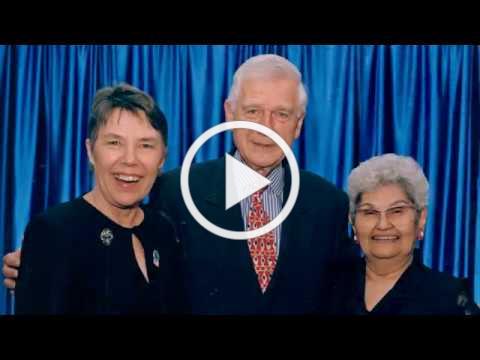Support-Development-of-the-University-of-Idaho-First-Nations-Learning-and-Gathering-Center
| Res #: | Committee: | Submitted by: | Title: Pass → | Yes | No | Amended/Tabled | To NCAI |
| 2019-20 | Education | Patricia Whitefoot | Support Development of the University of Idaho First Nations Learning and Gathering Center | X |
2019 Mid-Year Convention
Airway Heights, Washington
RESOLUTION #19 – 20
“SUPPORT DEVELOPMENT OF THE UNIVERSITY OF IDAHO
FIRST NATIONS LEARNING AND GATHERING CENTER”
PREAMBLE
We, the members of the Affiliated Tribes of Northwest Indians of the United States, invoking the divine blessing of the Creator upon our efforts and purposes, in order to preserve for ourselves and our descendants rights secured under Indian Treaties, Executive Orders, and benefits to which we are entitled under the laws and constitution of the United States and several states, to enlighten the public toward a better understanding of the Indian people, to preserve Indian cultural values, and otherwise to promote the welfare of the Indian people, do hereby establish and submit the following resolution:
WHEREAS, the Affiliated Tribes of Northwest Indians (ATNI) are representatives of and advocates for national, regional, and specific tribal concerns; and
WHEREAS, ATNI is a regional organization comprised of American Indians/Alaska Natives and tribes in the states of Washington, Idaho, Oregon, Montana, Nevada, Northern California, and Alaska; and
WHEREAS, the health, safety, welfare, education, economic and employment opportunity, and preservation of cultural and natural resources are primary goals and objectives of the ATNI;
WHEREAS, ATNI has historically supported strengthening the region’s Universities and Colleges to improve their campus and programs to support American Indian and Alaska Native students; and AFFILIATED TRIBES OF NORTHWEST INDIANS RESOLUTION #19 – 20
2019 MID-YEAR CONVENTION PAGE 2
WHEREAS, the University of Idaho (UI) is located on ceded land of the Nez Perce Tribe in northern Idaho; and
WHEREAS, the University of Idaho has been in conversation with the tribal communities and consulted with sovereign tribal governments in the region, through its President’s Native American Advisory Council (NAAC) and its Native American Advisory Board (NAAB), both of which were established in 2007; and
WHEREAS, the University of Idaho, through the NAAC and NAAB discussions, has determined there should be high priority given to: (a) access and recruitment of Native American students, (b) recruitment and promotion of Native staff, and faculty, (c) planning and construction of a First Nations facility on campus, (d) expansion and integration of Native American culture, knowledge and history into academic programs, and (e) strengthen and expand research and economic development partnerships with tribes; and
WHEREAS, the University of Idaho has learned, upon review of other college and university campus longhouse-like examples, that a “First Nations Center” could assist in access and equity goals and could contribute to the promotion of academic excellence on the campus for Native students, draw and retain Native staff and Native faculty, improve the relationships between tribal communities and the University of Idaho, as well as develop other intercultural and academic benefits; and
WHEREAS, a First Nations Center could serve as a home-away-from-home for Native American students while on the University of Idaho campus and a place for Tribal students to have space for cultural activities and ceremonies; and
WHEREAS, a First Nations Center could serve as a place for the 11 University of Idaho MOU Tribes to conduct collaborative Tribal business, conferences, and events; and a place for the University, local, and regional communities to engage in authentic tribal education and research; and
WHEREAS, the University of Idaho’s Office of Tribal Relations and the Office of Equity and Diversity has taken the lead, in cooperation with its President and Provost, in coordinating the effort to secure funding through private, individual, local government, state government, and federal government contributions for the feasibility, development, construction and operation of a First Nations Center; and
WHEREAS, the University of Idaho has requested $175,000 for capital funding from the State of Idaho to fund the building’s pre-design phase; and
WHEREAS, ATNI believes that such a facility will contribute to the recruitment and retention objectives of the University, as well as creating culturally supportive learning environments; now AFFILIATED TRIBES OF NORTHWEST INDIANS RESOLUTION #19 – 20
2019 MID-YEAR CONVENTION PAGE 3
THEREFORE BE IT RESOLVED, that ATNI does hereby fully endorse and support the concept that the University of Idaho would prepare and request to construct the First Nations Center on its campus; and that ATNI does urge its Member Tribes and tribal organizations to endorse the First Nations facility on the UI campus; and
BE IT FURTHER RESOLVED, that ATNI does hereby urge its Member Tribes and tribal organizations to endorse and contribute financially, to the extent possible, to the University of Idaho First Nations Learning and Gathering Center on the campus; and the University of Idaho will provide periodic reports and updates to the Affiliated Tribes of Northwest Indians’ on the progress of the project; and
BE IT FINALLY RESOLVED, that ATNI urges other Universities and Colleges in the Northwest to seriously consider similar projects and programs.
CERTIFICATION
The foregoing resolution was adopted at the 2019 Mid-Year Convention of the Affiliated Tribes of Northwest Indians, held at Northern Quest Resort and Casino, Airway Heights, Washington on May 20-23, 2019, with a quorum present.


